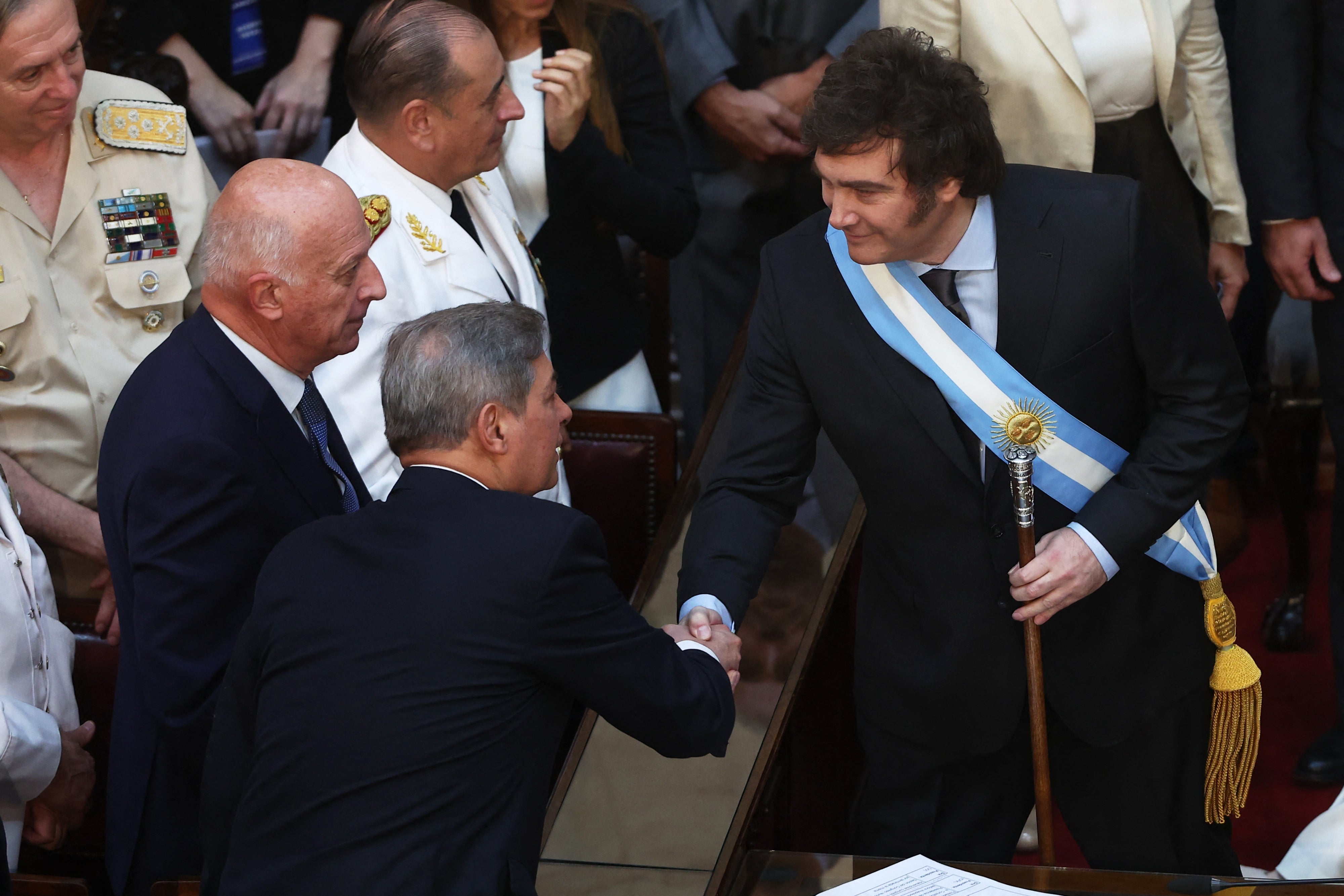(Washington, DC) – The government of Argentina should refrain from appointing Supreme Court justices by presidential decree and should nominate candidates based on their qualifications, experience, diversity, and integrity, Human Rights Watch said today.
In November, President Javier Milei’s chief of staff said that the administration was considering naming two Supreme Court justices by decree. Argentina’s five-member Supreme Court has had a vacancy since 2021 and is expected to have another one starting late December, when one of the judges retires. In April 2024, President Milei proposed Ariel Lijo, a federal judge, and Manuel García-Mansilla, a scholar, to fill the vacancies. The government has so far failed to obtain the two-thirds vote needed in the Senate to approve the nominations.
“Ahead of his first year anniversary in government, President Milei should show that his administration upholds judicial independence by following the congressional process for the appointment of Supreme Court justices,” said Juanita Goebertus, Americas director at Human Rights Watch. “Instead of appointing his current nominees by decree, President Milei should nominate candidates with the strongest qualifications and record of integrity and work with the Senate to get them approved.”
A provision in Argentina’s constitution allows the president to “fill employment vacancies that require Senate approval and that occur during a congressional recess.” While courts have not ruled on how this provision applies to Supreme Court justices, many scholars question whether Supreme Court justice vacancies fit the category of “employment” mentioned in the constitution. In their view, the provision refers solely to ambassadors, members of the military, and other executive branch officials. The provision also appears not to apply to vacancies that occur before the congressional recess in which the appointment by decree is carried out.
Argentina is party to human rights treaties, including the International Covenant on Civil and Political Rights and the American Convention on Human Rights, that require it to safeguard the independence and impartiality of its judiciary. The Inter-American Court on Human Rights has repeatedly said that judges should be appointed through an “adequate process” that protects their independence, including from the executive and legislative branches.
Under the Argentine constitution, presidential appointments made during a congressional recess should last until the “end of the following congressional period,” meaning in this case November 30, 2025. However, the Senate would be able to remove them before that period on any basis, which undermines their security of tenure and could undermine the judges’ real or perceived independence.
In December 2015, then-President Mauricio Macri cited the same constitutional provision to fill two vacancies in the Supreme Court by presidential decree. Human Rights Watch, other nongovernmental organizations, and scholars criticized the decision. However, the justices appointed by then-President Macri did not take office until they obtained the required two-thirds vote in the Senate, six months later.
Following President Milei’s nominations of Lijo and García-Mansilla in April, several rights groups, citizens, business associations, and scholars formally expressed concern over Lijo’s record as a federal judge and García-Mansilla’s views on reproductive and sexual rights. Lijo has five pending disciplinary investigations in the Council of the Judiciary, the body charged with investigating and removing federal judges. According to one study, he has faced 29 other disciplinary proceedings that were closed, including 16 held without any pretrial processing. Some proceedings were based on evidence that Lijo allegedly delayed and manipulated investigations into corruption.
Critics have pointed out that if Lijo and García-Mansilla are appointed, there will be no women on the five-member court, making it the only high court with such a composition in Latin America, the Caribbean, and the Iberian Peninsula. Under the United Nations Convention on the Elimination of All Forms of Discrimination against Women, which Argentina has ratified, governments must “take all appropriate measures to eliminate discrimination against women in [...] political and public life.”
An all-male Supreme Court risks perpetuating systemic barriers that hinder women’s access to leadership roles in the judiciary, undermining broader efforts toward gender equality and diversity in public institutions.








